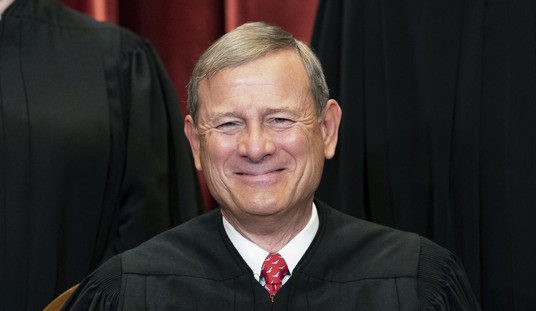For now, the run on the Russian ruble appears to have ended, thanks in no small part to Vladimir Putin — whose actions caused it in the first place. Putin himself seems to have at least implicitly acknowledged that in his annual news conference. Western sanctions and a glut on the oil market that appears to be in part an attack on Russian and Iranian interests have driven Russia into recession and decline — but that’s just temporary, Putin insists, and a small price to pay for freedom of action:
President Vladimir Putin accused the West of trying to subdue and disarm Russia at a defiant annual news conference Thursday, and blamed “external factors”—chiefly the drop in oil prices—for the collapse of Russia’s currency and stock market.
He acknowledged that Western sanctions over the country’s annexation of Crimea and role in Ukraine were biting, but said the economic troubles “are payment for our independence, our sovereignty.” He reassured Russians that they would last no more than two years, as Russia retools its economy away from oil, upon which it had become overly dependent.
Putin rejected calls to annex eastern Ukraine in the same manner as Crimea, preferring for now to have the previous polity in the former Russian republic restored. Putin refused to back away from his intervention there, though, and said the Western sanctions aimed at creating an existential threat to Russian autonomy. The US is the chief aggressor, Putin said, with Europe as a willing partner in restoring the Cold War:
The U.S., Mr. Putin said, is the source of aggression.
“It’s not a matter of Crimea. We are defending our independence, our sovereignty and our right to exist. We should all understand this,” he said later in response to a question about whether the current economic turmoil is “payment for Crimea.”
He blamed Russia’s widening rift with Europe on the West, saying “they didn’t stop building walls” after the end of the Cold War.
“We’re not warmongers,” Putin insisted:
“Just more of the same hard-line rhetoric,” CNN’s Matthew Chance reports, but it’s working — at least in Russia. It’s working in the markets too, as the run on the ruble has quieted down, especially after Putin’s defiance:
The Russian ruble steadied against the dollar on Thursday after President Vladimir Putin cautiously endorsed the central bank’s policy and gave no gruesome forecasts at his end-of-year news conference amid a growing economic crisis.
Following a volatile start of the day, with the ruble staging a short-lived recovery toward the level of 58 against the dollar on the Moscow exchange, the battered currency eased back and steadied around 61 as Mr. Putin tried to reassure his audience that Russian authorities are doing the right thing to fight the country’s financial crisis.
The government and central bank’s actions are “on the whole appropriate,” he said, though “some things could have been done more urgently,” apparently referring to this week’s emergency rise in interest rates. Russia’s central bank, in a bid to stem the ruble’s sharp decline, raised its key interest rate to 17%, its highest since 2003.
It wasn’t just the defiant rhetoric, though. Putin and his government started cracking down on exporters and currency traders today, which buoyed the currency:
On Thursday, Russia’s Vedomosti newspaper reported that the government had ordered the country’s largest exporters to cut their dollar and euro holdings by March to the levels they had in early October, meaning they are likely to sell more foreign currency, which will support the ruble.
Mr. Putin said during the news conference that he called some of executives of Russia’s export-focused companies and asked them to increase selling of hard currencies on the market.
“Asked” is probably a term of art. The problem for Putin is that these measures are basically window dressing. If OPEC continues to support the oil glut — and they’re probably going to keep up pressure on Iran, now that the West has backed away from sanctions — the ruble won’t recover for years, and in the meantime Russians will have to live with stagflation at best. Putin gets job-approval ratings in the 80s now because he’s seen as responding to Western aggression, and because the conditions haven’t dragged out for very long yet. Eventually, Russians will start asking themselves whether Crimea and eastern Ukraine are worth the dissipation of their life savings, and the answer will increasingly become no.
Putin wants two years for Russians to wait for a light at the end of the tunnel. That’s a very long time, even for an oligarchical autocrat, to keep the hoi polloi in line, let alone the oligarchs themselves.








Join the conversation as a VIP Member